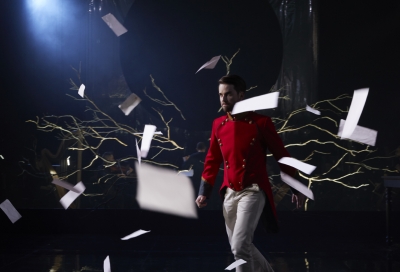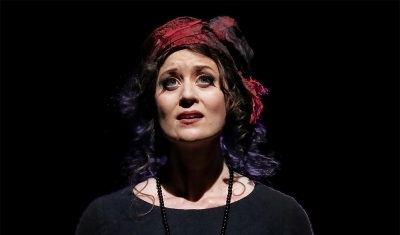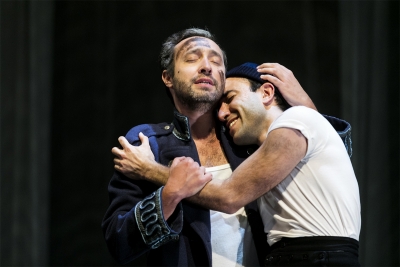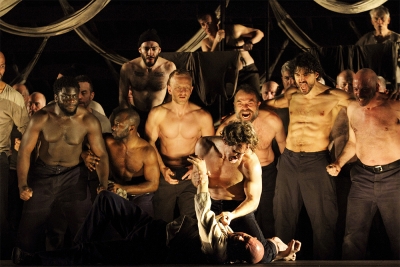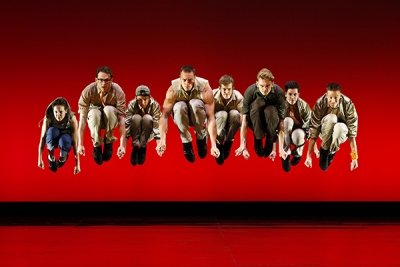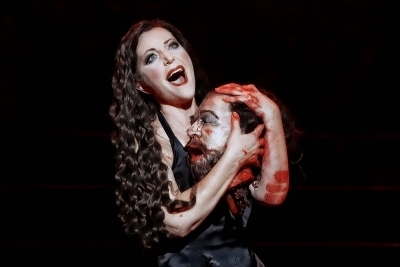Opera
Oscar and Lucinda (Sydney Chamber Opera) ★★★★☆
Two new Australian operas within the space of a fortnight is by any measure unusual. They are also operas at both ends of the spectrum in terms of scale. Elena Katz-Chernin’s Whiteley utilised the full resources of the major opera company, Opera Australia, including a large chorus, while Elliot Gyger’s Oscar and Lucinda ...
... (read more)Unlike the many films about the lives of artists, operas in which visual artists feature are few, though two of the most popular in the repertoire, Puccini’s Tosca and La Bohème, both have painters as central characters. The lives of artists are often messy affairs and resist convenient shaping into narrative arcs, with the actual creative process difficult to dramatise effectively ...
... (read more)Opera Australia – in its present expansionary phase – has hitched its wagon to a digital star in the form of a series of seven-metre-high LED screens. The future moves about on a busy automation system, thus creating a series of new dramatic spaces. Interviewed in the July 2019 issue of Opera magazine, Lyndon Terracini ...
... (read more)Some of the fascinating, indeed, frustrating aspects of the operas of Claudio Monteverdi include the lack of certainty in regard to both the authenticity of the various musical sources that have survived, and to exactly how these operas were performed, factors that influence performance choices made today ...
... (read more)On 24 May 2019, an excited Melbourne audience witnessed a night of spectacular entertainment and magnificent music in the Australian première of Rossini’s 1825 opera Il Viaggio a Reims, exuberantly reimagined by Damiano Michieletto. Il Viaggio is an opera with multiple backstories. It was Rossini’s first commission ...
... (read more)Given his towering position in the pantheon of American authors, it is surprising that the bicentenary year of the birth of Herman Melville, born on 1 August 1819 in New York, is passing with such little fanfare. However, this reviewer recently managed to catch performances of opera versions of his two most famous creations ...
... (read more)Dr Johnson famously defined opera as ‘an exotic and irrational entertainment’, and so it proved on the opening night of Opera Australia’s autumn season – at least until the curtain went up. Lights down, photography admonition underway, conductor due any moment, we became aware of a strange incident in the gloom, as a solitary figure ...
... (read more)Some sixty-two years after its Broadway première, Leonard Bernstein and Jerome Robbins’s musical and geographical updating of Shakespeare’s Romeo and Juliet continues to pack a powerful dramatic punch. While not without its weaknesses, such as the reliance on now-dated street slang and ethnic stereotypes ...
... (read more)Alex Ross, at the start of his acclaimed survey of twentieth-century music, The Rest Is Noise: Listening to the twentieth century, describes in vivid detail the luminaries gathered for one of the first performances of Richard Strauss’s Salome in Graz on 16 May 1906, five months after the Dresden première ...
... (read more)Mozart’s final opera, The Magic Flute, is a staple of Germany’s opera houses, and continues to be frequently produced in theatres internationally. Melbourne-born Barrie Kosky found himself under pressure to deliver a production of the 1791 Singspiel – comic opera with spoken dialogue ...
... (read more)
